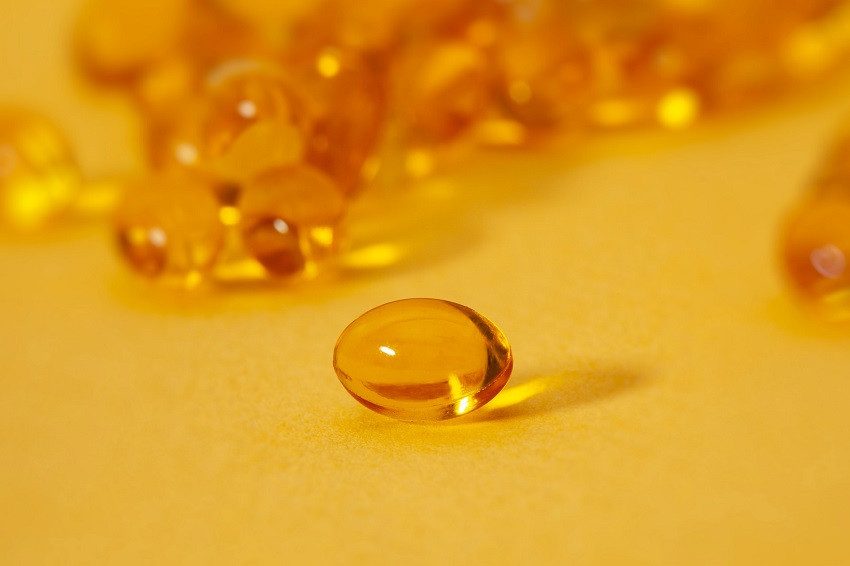A collagen drink is a supplement that contains collagen, sourced from various places like fish, cows, and poultry. Collagen in this type of form is often preferred because it is more easily absorbed by the body than whole collagen.
Benefits of consuming collagen drinks
Collagen, in the form of supplements and drinks, has many benefits for the body, including:
Stronger bones
Collagen is the primary protein in bones, playing a crucial role in maintaining bone strength and elasticity. As we age, the body's collagen production decreases, resulting in reduced bone density and an increased risk of osteoporosis and fractures.
Consuming collagen drinks can support bone health and help reduce the risk of osteoporosis and fractures.
Maintain skin elasticity and moisture
Collagen drinks are popular supplements for enhancing skin health. Being a major component in connective tissue, collagen contributes to improved elasticity, skin hydration, and reduction of wrinkles caused by aging.
Healthier hair and nails
Collagen serves as a structural protein in both hair and nails, playing a vital role in maintaining healthy hair follicles, moisturizing hair, preventing breakage, and ensuring overall nail health.
Muscle regeneration
Research has found that collagen supplements support muscle strength and integrity. Although results may vary from person to person, studies indicate that consuming collagen can promote muscle mass growth, especially when combined with regular physical exercise.
Improves heart health
Collagen is also a major component in the walls of arteries and blood vessels. Taking collagen supplements provides the strength and elasticity needed to keep blood flowing smoothly.
Risks of consuming collagen drinks
Each person's reaction to taking collagen supplements may vary, including intolerances and side effects that may be caused when these supplements are taken in excess. Consumption of collagen drinks can affect various organs and cause problems in the body, including:
Skin problems
The consumption of collagen supplements may lead to rashes, acne, and skin inflammation, particularly in individuals sensitive to collagen. Collagen supplements often contain preservatives, colorants, and sweeteners, which can result in allergic reactions and skin irritation.
Liver fibrosis
Excessive consumption of collagen, especially type 1 collagen, may heighten the risk of liver fibrosis and liver cancer. Liver fibrosis involves the replacement of healthy liver tissue with scar tissue.
It is critical to understand that liver fibrosis is not caused solely by excessive collagen consumption. Other risk factors for liver fibrosis include excessive alcohol consumption, obesity, and certain liver diseases.
Kidney stones
Genetics, diet, and body hydration all have an impact on kidney stone formation. Consuming collagen supplements increases the risk of developing kidney stones because it raises the levels of certain amino acids in the body, affecting urine composition and potentially leading to kidney stone formation.
Indigestion
Consumption of collagen drinks may also cause side effects such as indigestion, including diarrhea, constipation, and bloating, as well as reduced appetite.
Hypercalcemia
Collagen consumption poses the risk of causing hypercalcemia, the accumulation of excessive calcium in the body, which may affect the heart and lead to abnormal heart rhythm.
To avoid all potential risks and negative impacts, it is crucial to consult a doctor before considering any form of collagen supplement. Healthcare professionals, such as doctors or nutritionists, can provide more specific information tailored to an individual's body condition.
If you need medical advice or consultation, you can either visit a doctor or make use of the consultation features that are available in the Ai Care application by downloading the Ai Care application from the App Store or Play Store.
Looking for more information about nutrition, food, and other diet tips? Click here!
- dr. Monica Salim
WebMD (2022). Health Benefits of Collagen. Available from: https://www.webmd.com/diet/collagen-health-benefits
Medicine.net (2022). What Are the Side Effects of Taking Collagen?. Available from: https://www.medicinenet.com/what_are_the_side_effects_of_taking_collagen/article.htm
Jillian Kubala, MS, RD (2023). What Is Collagen, and What Is It Good For?. Available from: https://www.healthline.com/nutrition/collagen
Payal Patel, MD and Maryanne Makredes Senna, MD (2023). Considering collagen drinks and supplements?. Available from: https://www.health.harvard.edu/blog/considering-collagen-drinks-and-supplements-202304122911
Feng Zhao, et al(2020). Collagen deposition in the liver is strongly and positively associated with T1rho elongation, while fat deposition is associated with T1rho shortening: an experimental study of methionine and choline-deficient (MCD) diet rat model. Available from: https://www.ncbi.nlm.nih.gov/pmc/articles/PMC7596395/
Rachael Ajmera, MS, RD (2021). Is Taking Collagen Safe for Your Kidneys?. Available from: https://www.healthline.com/nutrition/collagen-side-effects-on-kidney











